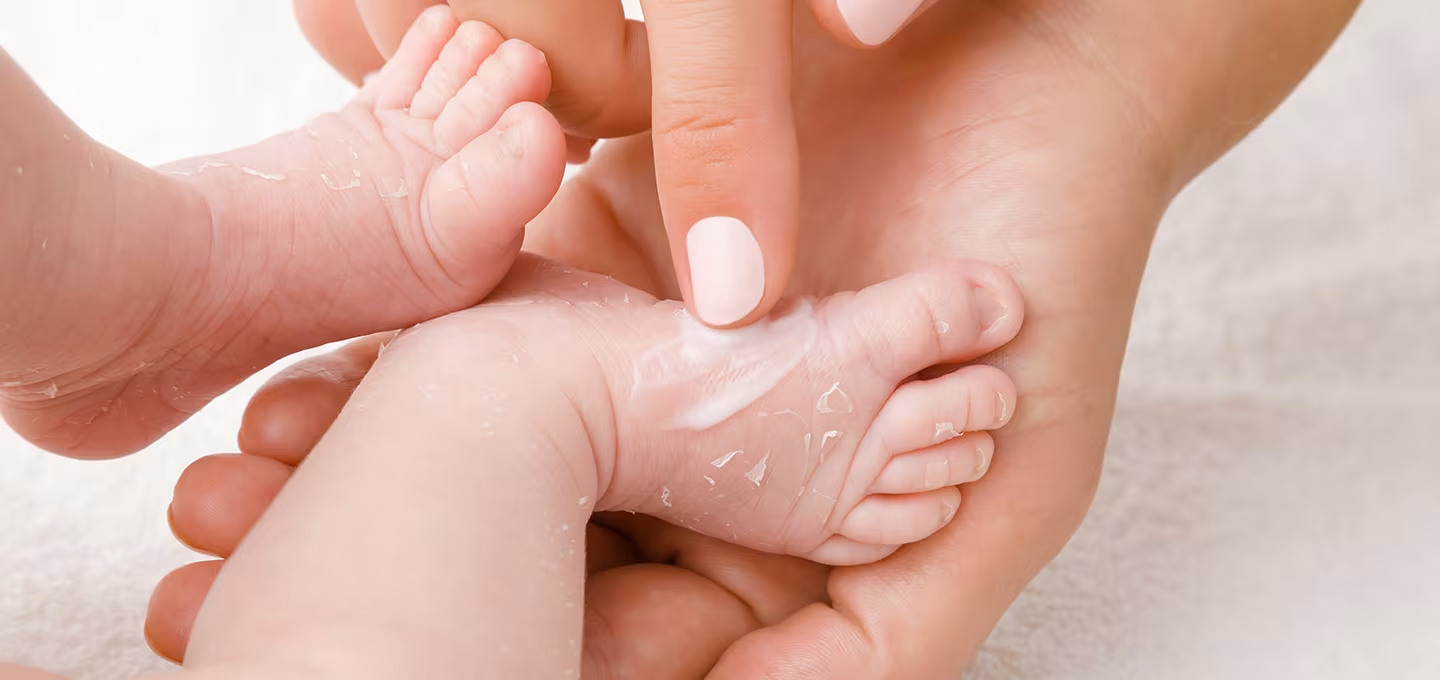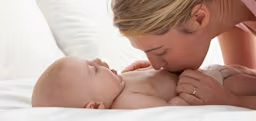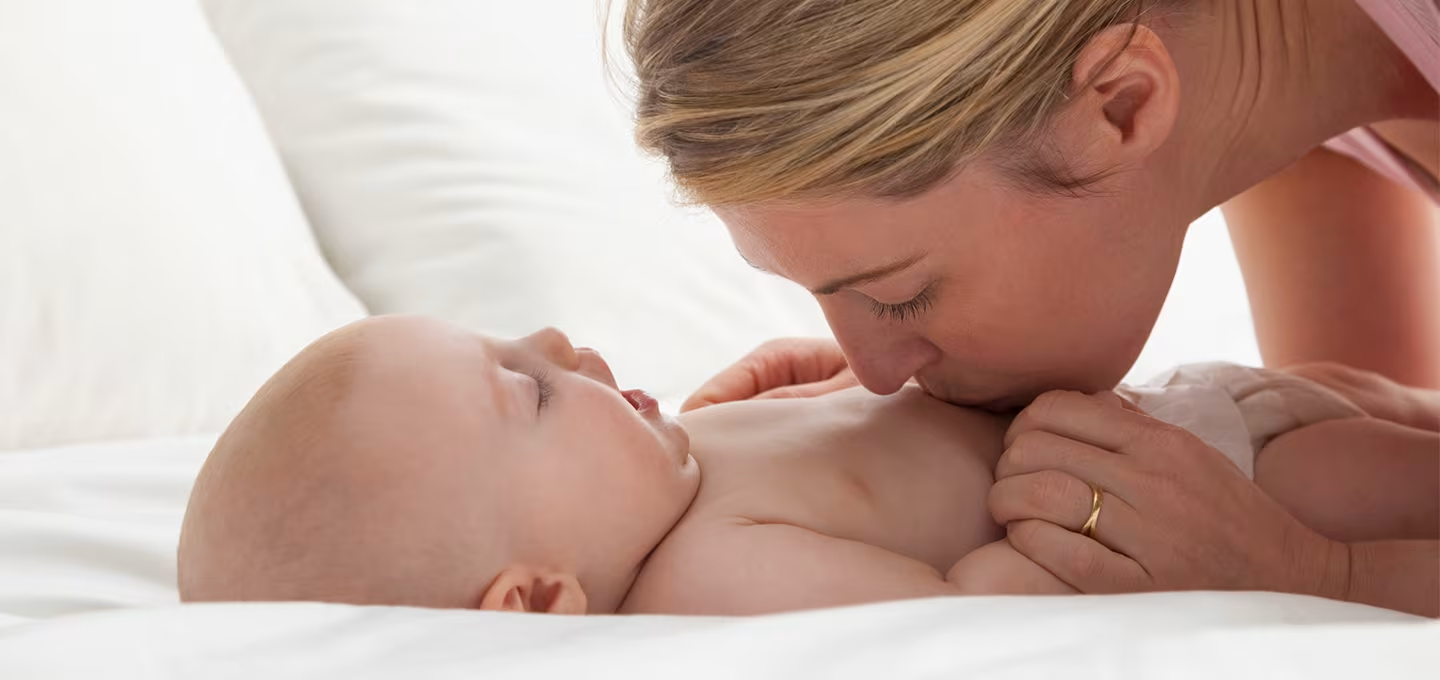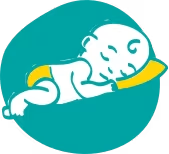
Dry, Peeling Skin in Newborns and Older Babies


You might notice some flaking or skin peeling in the first few days or weeks after your newborn is born. And your older baby’s skin may also become dry and even experience skin peeling from time to time. Read on to find out what causes your little one's dry, flaky, or peeling skin, and pick up 13 ideas on how you can help prevent your baby’s skin from drying out.
Why Newborns and Older Babies Have Peeling Skin
A newborn’s skin is delicate, especially right after birth, and it's likely that you'll notice your infant's skin peeling. Flaky or peeling skin is normal at this stage and doesn’t require any special treatment.
Basically, in your newborn’s first few days and weeks, the top layer of skin sheds, resulting in your newborn's skin peeling off. This skin peeling tends to be more common for babies who were born past their due date.
It’s not just during the early newborn phase that you may notice your baby's skin peeling. Children’s skin is typically thinner and more delicate than adult skin, which means it can lose moisture faster and dry out more quickly. So, don’t be surprised if, at some point, you see dryness, flaking, or peeling skin on your older baby or toddler.
If your baby has a skin condition like atopic dermatitis (a form of eczema), you might also notice more frequent dryness, flaking, or peeling.
13 Ways to Manage Your Baby’s Dry, Peeling Skin
Here are some steps you can take to protect your baby’s delicate skin and help prevent dryness and peeling:
When to Call Your Baby’s Healthcare Provider
After the first few weeks of the typical newborn skin peeling and flaking have passed, if your baby’s skin still seems dry or even irritated, even when you've followed all the tips above, it’s best to get in touch with your baby’s healthcare provider.
Sometimes dry, flaky skin may be the result of an allergic reaction or skin rash that may need to be treated with prescription medication.
If the red, flaky skin is in the diaper area, it may be a diaper rash. Diaper rash can often be managed at home with frequent diaper changes, exposing the skin to air more often, and by using a barrier ointment. Still, if the diaper rash looks severe or doesn’t go away, it’s worth contacting your baby’s provider for personalized advice on what to try next.
FAQS AT A GLANCE
Yes, newborn skin peeling may occur in the first week or two after birth. Babies born past their due date have an even higher chance that their skin will peel.
The Bottom Line
Seeing your newborn's skin peeling off is nothing to be alarmed about. It’s completely normal and may continue for the first week or two as that top layer of skin slowly sheds.
After this initial period, however, your baby’s delicate and sensitive skin is still prone to drying out and peeling. To help prevent this, you can take steps such as shortening bath time, using a moisturizer, avoiding synthetic fabrics, washing your baby’s clothes and bedding in a laundry detergent designed for babies, and even using a cool-mist humidifier.
If your baby’s skin continues to be dry or flaky, contact their healthcare provider. It may be a sign of a rash or an allergic reaction requiring medical treatment, such as a prescription ointment.
A little dryness aside, your baby’s skin is still irresistible, so keep on kissing those chubby cheeks, blowing raspberries on their tummy, and enjoying those precious skin-to-skin moments. Don't forget to check out the Pampers Rewards app for rewards and discounts on all your Pampers purchases.
- Healthy Children. “Avoiding Dry Winter Skin in Babies and Toddlers.”
- Healthy Children. “Baby Sunburn Prevention.”
- Healthy Children. “Bathing Your Baby.”
- Healthy Children. “Common Diaper Rashes & Treatments.”
- Healthy Children. “How Your Newborn Looks.”
- Healthy Children. “Infant Allergies and Food Sensitivities.”
- Kids Health. “Looking at Your Newborn: What's Normal.”
- Mayo Clinic. “What a Newborn Really Looks Like.”
Read more about Baby
Join a World of Support
through Pregnancy and Parenthood.
TRACK WITH TOOLS
LEARN WITH EXPERTS
GET REWARDED









